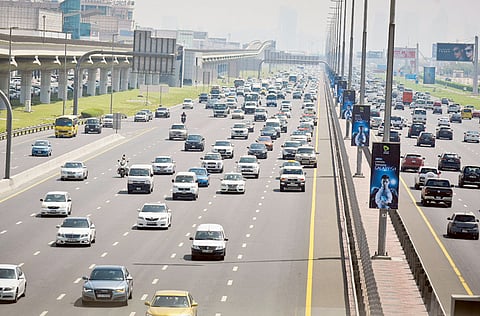UAE residents get back to the grind energised after Ramadan, extended Eid break
Today also marked first day that government offices saw staff back at the desks

Also In This Package
Abu Dhabi/Dubai: For residents across the UAE, a month of relaxed Ramadan timings and an extended Eid break have ended.
Sunday marks the first day back at work and school under regular timings, and many said they have been prepping to slip back into their normal weekday routines.

“It can be a shock to the system, especially as many of us work three to four hours more than we do in Ramadan. So I went to bed early last night, and my wife tried her best to get the children to rest up before the start of school,” he added.
Government workers return
Today also marks the first day that many government offices saw all employees back at their desks. Prior to this, many had limited attendance, and were implementing work-from-home protocols in order to curb the COVID-19 outbreak. But according to directives issued last week, all government workers must attend work in person, and those not yet vaccinated against COVID-19 must take weekly PCR tests at their own expense.
In fact, only female workers in government offices who are overseeing distance learning for their children are still exempted from being present at the office, with the exemption valid only till the end of the current school year in summer.
Changing the routine
“We have been working from the office for a while now, but it still is a change to be working a full day again after Ramadan. I woke myself up extra early yesterday so that I could go to bed early and be rested enough to report to work at 8am today,” said Fatin Elkhalil, a 24-year-old senior account exective from Sudan.
Elkhalil’s workday is also back to its nine-to-six routine, compared to Ramadan timings that saw her at work from 10am to 3pm only. “It certainly feels weird, but the Eid break was especially lovely, and it is time to get back,” she said.
Iman Suguitan, 43, chief executive offiver and founder of cochocolat.com, said she is starting out work post-Ramadan and after the long Eid break with a fresh mind.
“I love the month of Ramadan as it gives a break both mentally and spiritually. Ramadan for me personally is such a welcome as the entire year otherwise is stressful. The discipline followed in Ramadan, whether it is food or habits, are carried forward post-Eid as well. And this always reflects positively at work. My sleep patterns have changed. I wake up early so I put on my thinking cap a bit earlier than I used to,” Suguitan said. “Ramadan gives you time to reflect and what you have not been able to accomplish. So in many ways when you start work after Eid, there are fresh goals set in our minds,” she said.
“One of the things the pandemic highlighted was the “Fear of missing out” (FOMO). In Ramadan you realise you should not be thinking of what others are doing. Focus on your mental well-being. These good thoughts, trust me, reflect so positively in your work productivity,” the entrepreneur added.
Refreshed and ready
Charles Nahhas, 46, a British expat who is chief executive officer for an e-commerce luxury brand gifting website, said he is getting back to work in a slow and steady way.
“After the long break, you yearn for another long break. It is great that we have another Eid break to look forward to in two months’ time. But Ramadan and Eid allowed me time to put a solid plan in place for my new start-up company. My mind is so fresh with ideas I cannot wait to start implementing them one by one,” he said.
During Ramadan, Nahhas said he found time to relax and work flexible hours. “We were working shorter hours, but the staff and I are excited to now get back in full swing,” he added.
More disciplined
Many residents said they also feel more disciplined after their Ramadan reset, which tends to promote positive behaviours like time management.










